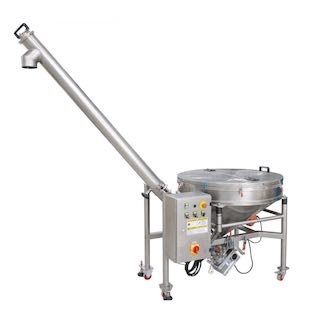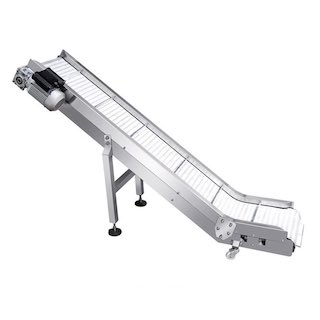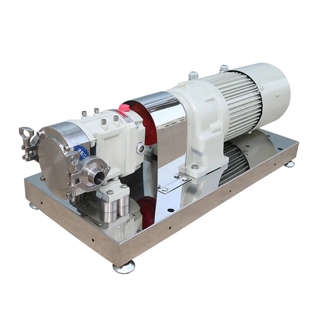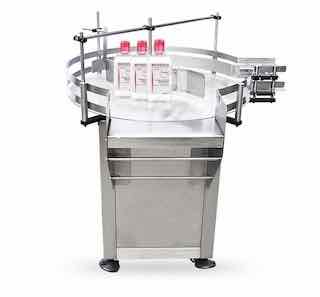Fed up with inefficient manual handling?
Say goodbye to labor-intensive production methods.
Discover the ultimate solution for your conveying system needs in our catalog. Upgrade to an automated solution and increase your efficiency.
Don’t settle for less when it comes to your conveyor needs.
Unleash your business’s potential with our revolutionary solutions. Browse our catalog now and discover how we can elevate your success to new heights.

The benefit of using
By utilizing a conveying system, businesses can achieve significant cost savings while improving operational efficiency, workplace safety, and the overall quality of their products.

Optimized Workflow: By utilizing loaders, the transportation of materials can be expedited with precision and consistency, resulting in a streamlined production process and elevated efficiency levels.
Increased Safety, Decreased Costs: With a conveying system in place, businesses can minimize the risk of employee injuries and associated costs, while also reducing labor expenses.
Revolutionary Storage Strategy: Tailored feeders can be adapted to fit cramped quarters, maximizing the available ground real estate in a warehouse or production plant.
Discover our Loader selection

Screw Conveyor

Bucket Conveyor

Belt Conveyor

pump Conveyor

Bottle unscrambler
Screw Conveyor VS. Bucket Conveyor
They are two popular types of loading systems, each with its own unique advantages and applications.
Screw feeders are typically used for moving materials that are fluid or semi-fluid, such as grains, slurries, or powders. It is designed with a rotating screw inside a tube or trough, which moves the material along the length of the tube or trough. One of the main benefits of this feeders is their ability to handle materials of varying viscosity and consistency.
Bucket feeders, on the other hand, are typically used for moving bulk materials such as sand, gravel, or other dry goods. Bucket conveying equipments consist of a series of buckets that are attached to a chain or belt, which moves the buckets along a horizontal or inclined path. One of the main benefits of bucket loaders is their ability to move large quantities of material quickly and efficiently.
How to choose
By considering these factors and working with a trusted conveying machine supplier TodayMachine, businesses can select the conveyor type that best meets your needs and provides the most value for your investment.
Material Type
The optimal loader type is often dictated by the characteristics of the material in transit. For instance, screw conveying machines excel at handling powders and tiny granules, while bucket conveyors are the go-to choice for dry bulk materials.
Capacity and Speed
The optimal selection of feeder type will hinge upon the desired conveyor capacity and speed. Typically, belt conveying systems are the preferred choice for high-capacity and high-speed operations, whereas slower-moving materials with lower capacity requirements are better suited for screw and bucket conveyors.
Space and Layout
The available space for installation and the layout of the production facility will also impact the choice of loading machine type. Belt conveyors can be installed in a straight line or curved to fit the available space, while screw and bucket conveying equipments may require more space for installation.
Maintenance and Cleaning
When weighing the factors at play, it’s important to keep in mind the convenience of upkeep and sanitation. Compared to screw and bucket feeders, belt conveyors boast a greater ease of maintenance and cleaning, necessitating less frequent attention to keep them in optimal working order.
Smart Tips for Conveyor Pricing and Purchase
Making an informed decision when it comes to purchasing a conveying machine is vital to ensure seamless material handling in your facility. Our price and purchase tips provide valuable guidance to help you navigate through the selection process and choose the right conveying machine for your specific needs. From defining your requirements to evaluating quality, customization options, and after-sales support, we cover essential factors that contribute to a successful purchase.
- Define Your Needs: Before purchasing a conveying machine, carefully assess your specific requirements. Consider factors such as the type and size of materials to be transported, the desired conveying speed, and the layout of your facility. This will help you determine the right type and configuration of conveyor for your needs.
- Quality and Durability: Look for conveyors that are built with high-quality materials and components. Consider factors such as the conveyor’s load-bearing capacity, motor power, and overall construction. Investing in a durable and reliable conveyor will ensure long-term performance and minimize maintenance costs.
- Customization Options: Explore conveyors that offer customization options to suit your unique application. Consider features such as adjustable speed controls, flexible configurations, and modular designs that can accommodate future expansion or changes in production requirements.
- Price vs. Value: While price is an important consideration, focus on the overall value the conveyor brings to your operations. Look for conveyors that offer a balance between cost-effectiveness and performance. A slightly higher initial investment may be worthwhile if it translates to improved efficiency, reliability, and longevity.
- Maintenance and Support: Consider the availability of maintenance services and technical support from the conveyor manufacturer. Look for companies that provide comprehensive after-sales support, including access to spare parts, maintenance guidelines, and prompt customer assistance.
- Warranty and Return Policy: Evaluate the warranty and return policy offered by the conveyor manufacturer. A solid warranty coverage provides peace of mind and protects your investment in case of any manufacturing defects or issues.
- User Reviews and Recommendations: Take time to research customer reviews and testimonials of the conveying machines you are considering. Genuine feedback from other users can provide valuable insights into the performance, reliability, and overall satisfaction with the product.
- Consultation and Expert Advice: If you have specific questions or need guidance in selecting the right conveying machine, reach out to industry experts or the conveyor manufacturer’s sales team. They can offer valuable advice and help you make an informed decision.
Rest assured, making a strategic investment in a dependable and high-performing conveying machine is paramount to streamlining your production processes and unlocking optimal operational efficiency. By keeping these invaluable price and purchasing tips in mind, you can navigate the market with confidence, ensuring that the chosen conveying machine aligns seamlessly with your unique requirements and offers enduring value for your business.